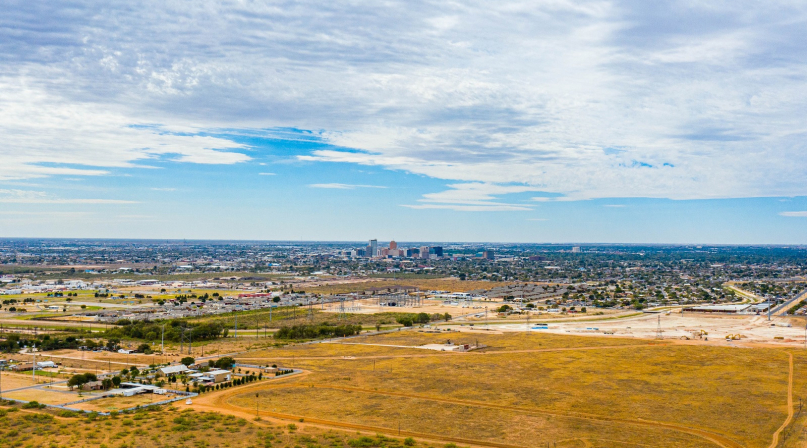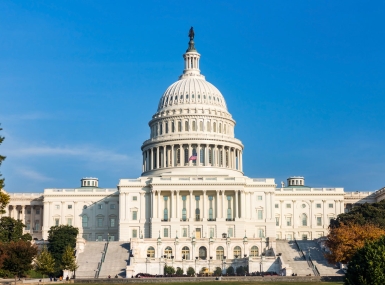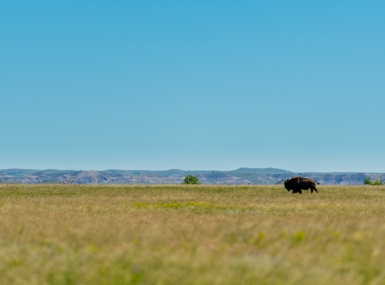Growth in Texas county drives water imports

Key Takeaways
Go looking for liquid in unincorporated Midland County, Texas and you’re probably going to find oil before you find water.
That oil has been driving development in the West Texas county for decades, and as the city fills up and sprawl extends beyond the city of Midland’s water service area, the county is working to bring in water from the same place it gets its new neighbors — somewhere else.
“All they have are water wells and a lot of the water wells out there have run dry,” said Commissioner Luis Sanchez. “Some of them have been contaminated with chromium and different things. We’ve got oil companies that are actually out there, trying to clean that water, but there’s not enough.”
But wells won’t match the demand from a growing county, so Midland County spent $4.3 million to buy the water rights to a ranch in Winkler County, near the New Mexico border, with a much deeper aquifer and is working to pipe in that water. And with oil prices high during Russia’s war with Ukraine, Sanchez sees potential for more residential growth, and soon.
“Our biggest thing is to make sure that we have anything and everything available, especially water,” he said. “We’re working on that right now, trying to make sure that water does not become a reason why people don’t move here to Midland County.”
The county’s purchased water rights — the Roark Ranch — is 70 miles away, and close to two water sources that supply the city. That will take an agreement among the county, city, county utility district and the county’s freshwater district. The city has already built a water pipeline from Winkler County.
“We do have aquifers down here that recharge but they recharge so slow that you can’t depend on that water,” Sanchez said. “And that’s before you figure in a drought.
“In the last few years, [water supply] has gone from being maybe the top five issue to the number one concern we have as a county.”
As Sanchez lays it out, oil comes first, then housing comes next, but the last thing the county wants is for those subdivisions to run on well water, and while bringing in water from two counties away doesn’t seem like the ideal solution, it’s the most efficient use of resources. Midland County, in the productive Permian Basin, has the oil and the residents, while Winkler County has few residents and comparably more water.
“Oil is the bloodline of this community and it’s more important for us to build oil wells,” Sanchez said. “I don’t say that as a bad thing. I see that as a great thing to build oil wells. There’s just no other place to build, unless we become like New York and start building up. I don’t see that happening anytime soon, because we are Texans; everybody wants their land. They want to have open space.”
But with that open space, and lower population density, comes the economics that water will be more expensive for county residents than their neighbors in the city.
Because the unincorporated Midland County is within 150 miles of the Texas-Mexico border that has a majority population composed of low-income residents, it is eligible for infrastructure funding and able to access additional grants and resources.
“We can’t get that Roark Ranch water to Midland because it would cost another $600 million, so we’re trying to work with the city to be able to say, for every gallon of water that they can pump out at the Roark Ranch, we get it back on the end here in Midland and be able to distribute it to our residents. Like everything, it’s a negotiation.
“I know the city is wanting to work with us because, again, there is no room to grow,” he said. “There’s no other place but the county, so we want to be able to provide that to all of our residents out here. It’s imperative now out here in West Texas that we work with each other to be able to come up with that solution.”
Sanchez also sees opportunities in the Bipartisan Infrastructure Law to help the county out.
“We’re very excited about everything that President Biden has done in regard to the infrastructure bill because it came at the right time for us as a county, as we’re looking to increase our water resources and being able to connect county-rural residents to water,” he said. “We’re wanting to make sure that rural residents are getting potable water, water that they can drink; that they don’t have to worry about when they turn it on, that it’s coming out this lime green color because it has chromium or it has any other thing that we may find out there.”
Attachments
Related News
‘Fix-It Fair’ brings new life to damaged items, helps divert waste
Thurston County, Wash. partnered with a non-profit, whose members volunteer to fix things that were difficult to recycle.

U.S. House of Representatives passes SPEED Act and other permitting reform bills
On December 18, the U.S. House of Representatives passed the SPEED Act (H.R. 4776). The SPEED Act would strengthen county involvement in decision-making and make needed commonsense reforms to the federal environmental review process.

House Natural Resources Committee advances the Endangered Species Act Amendments Act of 2025
On December 17, the House Natural Resources Committee advanced the Endangered Species Act (ESA) Amendments Act of 2025 (H.R. 1897). The version passed by the committee adopted several changes from the initial bill and would address key county concerns by improving the implementation of the ESA. The legislation now awaits a floor vote before the whole U.S. House of Representatives.
